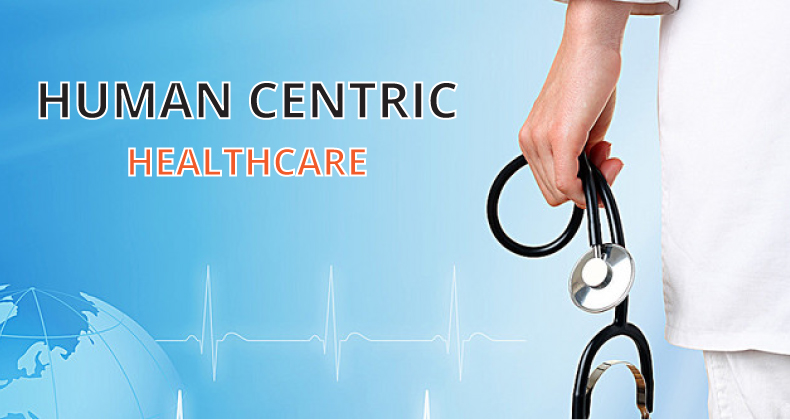The healthcare industry is at a tipping point and technologies are advancing forward at an extraordinary pace. With IoT devices in the scene, consumers have started to increasingly use internet connected devices to monitor their health data. According to the Federal Trade Commission, it is estimated that by 2020 people will use around 50 billion internet connected devices to track individual health data. With such a rapid expansion in the field of healthcare, the use of IoT devices would have an economic impact of up to $1.6 trillion by 2025.
Consumers now seek greater control over their healthcare decisions, and desire more engaging relationships with healthcare providers. Their expectations are increasingly commoditized, connected, and quantified. To meet the evolving expectations healthcare businesses must reframe their culture and build products, services and connectivity through a human-centric lens.
Adopting the human-centered approach
Healthcare providers are starting their transformation to put the patient first. Here are the important steps involved in building a human-centric healthcare business:
- Identifying people who are at risk and knowing what they need before they need it.
- Reaching people, the digital way, irrespective of their digital experience level.
- Designing personalized interventions and deploying them in a timely manner, predictively.
Leveraging smart technology and connected data redefines a new value exchange in healthcare, and understanding customers’ behaviors, along with their minds and hearts. Healthcare providers should shift from product based to service based, so the customers’ expected services are seamlessly integrated into their lives and personal healthcare needs.
Forces shaping the human-centric healthcare model
Bridging the gap between customers’ expectations and expectations will require connectivity and collaboration across the healthcare ecosystem. Here are the factors influencing the journey to a human-centric healthcare:
Data Strategy – Data unveils new opportunities. A robust data strategy is necessary for healthcare companies to manage their business and make decisions wisely.
Content Strategy – Consumers want to get their health information and valuable insights in an engaging and personalized way. That information should be delivered through every possible communication channel, so the consumer is connected with the healthcare system every second.
Intelligence and Discovery – Customers expect the healthcare providers to find their needs and help them based on the patient history and Artificial Intelligence (AI) to know their current needs and forecast their future needs.
Clinical Trial Recruitment – Prioritizing the patients is a major challenge in the healthcare industry. To overcome this issue, healthcare businesses should leverage patient engagement solutions to decrease the inefficiency and time of clinical trial recruitment.
Better Patient Engagement – With AI taking a leap forward and bolstering automated Rx decisions, new relationships between the consumer and healthcare provider will be established.
Integrated Information – A connected workflow of information enables a better way of representing data, besides putting all the patient information in an Electronic Health Record (EHR).
The above 6 factors contribute to the customer experience and health outcomes of a healthcare provider. The conventional healthcare model no longer aligns with the new customer mindset. It’s now full steam ahead with smart technologies fusing into healthcare. To keep the future of healthcare sailing smooth, it’s important to build the next generation’s healthcare with human-centricity in mind from the very start.

